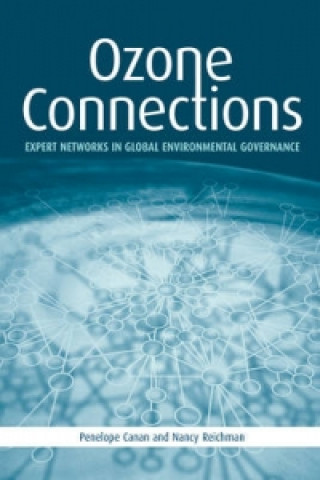
Doručení
Nákupní rádce





Nehodí se? Vůbec nevadí! U nás můžete do 30 dní vrátit
 Dárkový poukaz
V libovolné hodnotě
Dárkový poukaz
V libovolné hodnotě
S dárkovým poukazem nešlápnete vedle. Obdarovaný si za dárkový poukaz může vybrat cokoliv z naší nabídky.
Ozone Connections
 Angličtina
Angličtina
 168 b
168 b
30 dní na vrácení zboží
Mohlo by vás také zajímat


It is difficult to think of a more significant example of international co-operation to address a problem that threatened the health and wellbeing of the entire planet than the 1987 Montreal Protocol for the Elimination of Ozone-Depleting Substances. This breakthrough in international environmental governance has proved to be an extraordinary success beyond rhetoric or promises. In a dozen years, this international agreement went from an understanding of the need to act in a precautionary manner for mutual benefit to a successful worldwide effort to eliminate chemical substances harmful to our protective ozone layer. The production and consumption of most ozone-depleting substances has now been phased out in developed countries, with developing countries not far behind. What happened and why is of tremendous importance for those looking for guidance in the future, particularly those now involved in hugely complicated negotiations on climate change. The success of the Montreal Protocol has been linked to many factors such as political will, treaty flexibility and the recognition of equity issues raised by developing countries. While comprehensively analysing all of these success factors, Ozone Connections goes on to suggest that a social organisation of global governance as typified by the protocol's Technical and Economic Assessment Panel (TEAP) was a unique - but replicable - decisive factor. The book argues that we need to understand how the implementation of complex global environmental agreements depends on the construction and exploitation of social connections among experts who act collectively to define solutions to environmental problems. This highly original and provoking thesis synthesises some of the more exciting social science concepts and methods, while refining our basic understanding of environmental social change and providing policy-makers with concrete success factors to replicate. This book will be essential reading for academics in the fields of sociology, political science, international relations, network studies, human communication, motivation, collaboration and leadership, as well as the burgeoning interdisciplinary field of environmental studies. Businesses will also find many applications for practical use. Finally, the many directly transferable lessons from ozone layer protection make this book a key addition to the growing literature on climate change.
Informace o knize
 Angličtina
Angličtina




 Jak nakupovat
Jak nakupovat


















